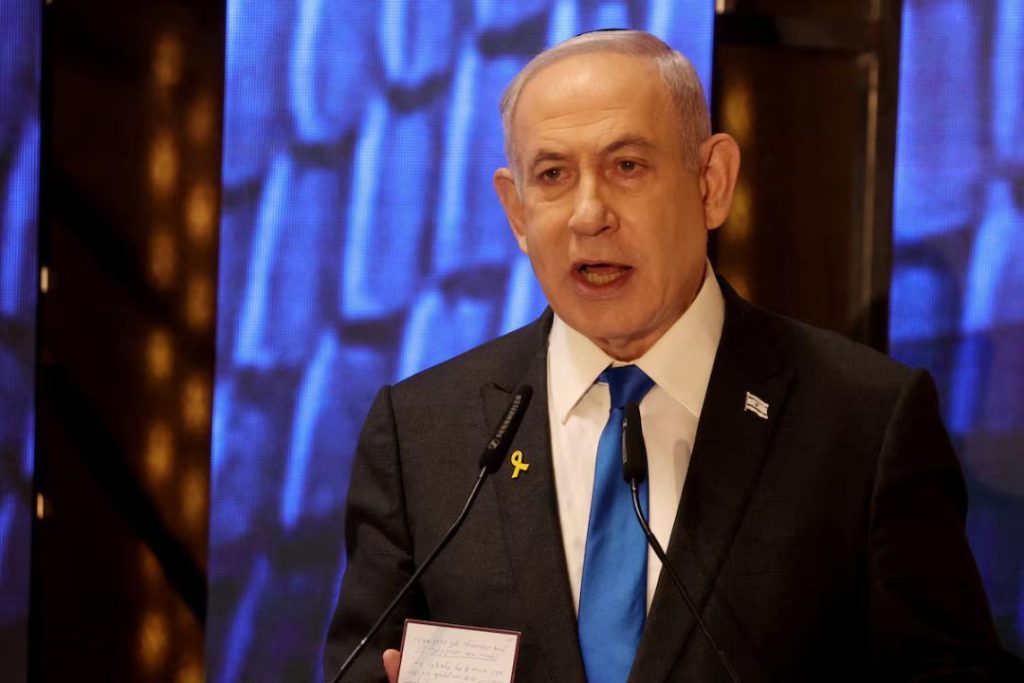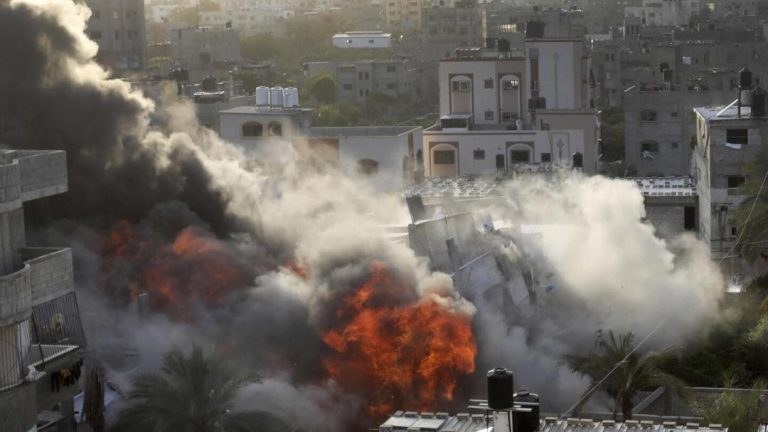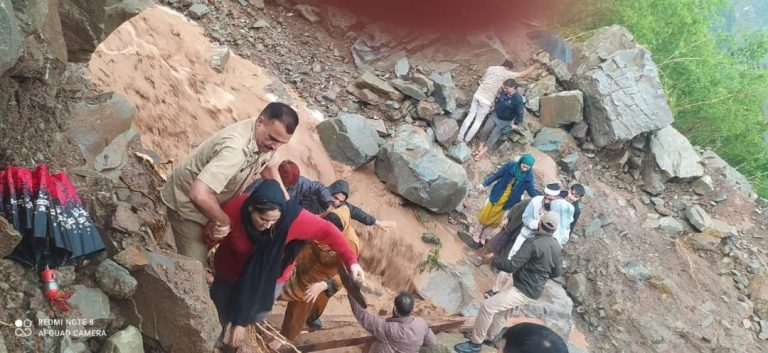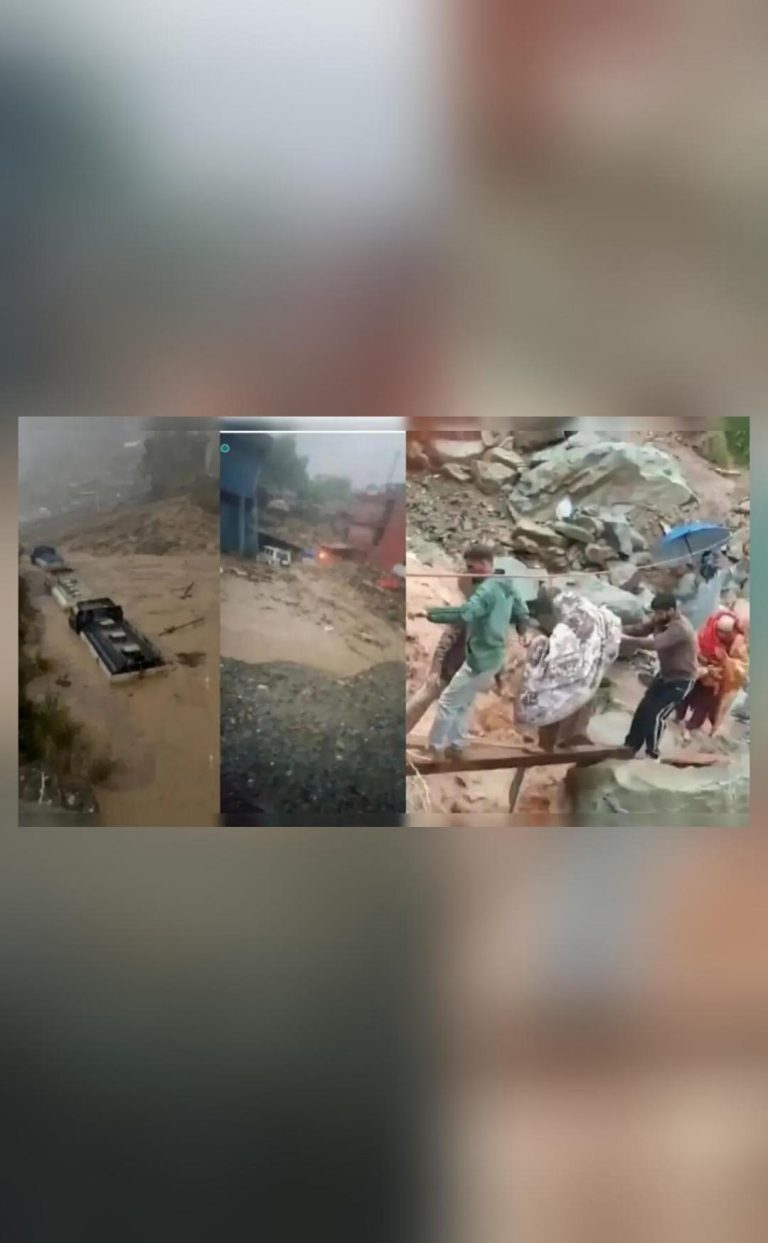
Increase Pressure on Hamas, Says Israeli PM Netanyahu to Army
Tensions between Israel and Hamas have escalated further after Israeli Prime Minister Benjamin Netanyahu ordered the military to increase pressure on the Palestinian militant group. This move comes after Hamas rejected a ceasefire proposal, sparking concerns about the ongoing conflict in the Gaza Strip.
According to reports, Netanyahu emphasized that despite the heavy cost of war, Israel must continue to fight for its existence. This statement underscores the Israeli government’s determination to take a tough stance against Hamas, which has been accused of launching numerous rocket attacks against Israeli cities.
The latest development in the conflict comes as Hamas’ Gaza chief, Khalil Al-Hayya, offered a surprise proposal to swap 59 Israeli hostages for Palestinians jailed in Israel in exchange for ending the war. While this offer may seem like a breakthrough, it remains unclear whether it will be accepted by the Israeli government.
The fate of one Israeli-American hostage, Edan Alexander, is currently unknown. Alexander, who was captured by Hamas in 2021, was included in the list of hostages that Hamas is willing to release as part of the proposed swap. His family has been lobbying for his release, and his case has garnered significant international attention.
The ongoing conflict between Israel and Hamas has resulted in significant human suffering and economic devastation in the Gaza Strip. The blockade imposed by Israel on Gaza has made it difficult for the region to access basic necessities, including food, medicine, and electricity. The situation has been exacerbated by the recent fighting, which has left many civilians without access to basic services.
The international community has called for an immediate ceasefire to end the violence and allow for humanitarian aid to reach those in need. However, the Israeli government has been reluctant to accept a ceasefire, citing the need to protect its citizens from Hamas’ rocket attacks.
The situation is further complicated by the fact that Hamas is considered a terrorist organization by many countries, including the United States. This designation has made it difficult for the organization to gain international recognition and support.
Despite the challenges, some countries have called for diplomacy and dialogue to resolve the conflict. The European Union, for example, has urged both sides to engage in negotiations and find a peaceful solution.
In response to the recent developments, the Israeli military has launched a series of airstrikes against Hamas targets in the Gaza Strip. The military has stated that its goal is to weaken Hamas’ military capabilities and reduce the threat posed by the organization.
The situation is currently volatile, with both sides refusing to back down. The international community is closely monitoring the situation and urging for a peaceful resolution.
Background to the Conflict
The conflict between Israel and Hamas has its roots in the Israeli-Palestinian conflict, which has been ongoing for decades. The situation escalated in 2007, when Hamas took control of the Gaza Strip, displacing the Palestinian Authority.
Since then, the conflict has seen numerous outbreaks of violence, including rocket attacks launched by Hamas against Israeli cities and retaliatory airstrikes by the Israeli military.
The conflict has resulted in significant human suffering, with thousands of Palestinians killed and injured. The blockade imposed by Israel on Gaza has also had devastating effects on the local economy, leaving many civilians without access to basic necessities.
Conclusion
The situation between Israel and Hamas is complex and volatile, with both sides refusing to back down. While the international community is urging for a peaceful resolution, the conflict continues to escalate, with both sides suffering significant losses.
The fate of Edan Alexander and other Israeli hostages remains unknown, and the situation in the Gaza Strip continues to deteriorate. The international community is closely monitoring the situation, and it is hoped that diplomacy and dialogue can be used to resolve the conflict and bring peace to the region.
Source:






